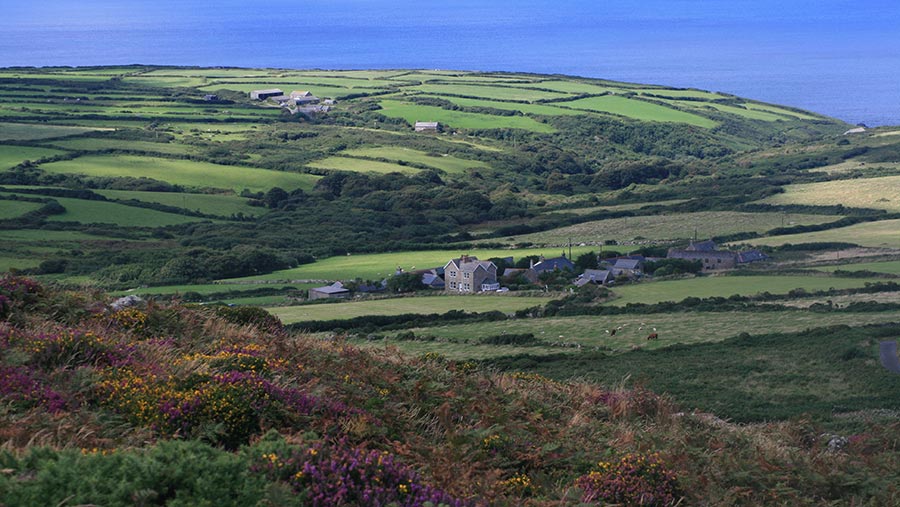Penwith Moors farmers sell up following SSSI designation
 © Diana Leadbetter/ Adobe Stock
© Diana Leadbetter/ Adobe Stock Farmers and landowners in West Penwith have started to dispose of their holdings following the designation of the area as a protected site.
Natural England (NE) designated more than 3,000ha of the Land’s End peninsula in Cornwall as a site of special scientific interest (SSSI) last October.
See also: Natural England accused of ignoring own rules on Penwith SSSI
One farmer said: “The two largest farms in my parish are being sold off. I will be handing back my tenancies this summer.
“All of this is a direct result of the SSSI burden. I have heard the exact same story repeated in the other 10 parishes on the peninsula.”
Against the background of the SSSI designation and an increased burden of regulation, a farm in Zennor which has been owned continuously by the same family is being marketed for the first time in more than 400 years.
Four more farms
The same agent is marketing four other farms within the SSSI, including one which has been owned by the same family for more than 80 years.
“It’s unprecedented to see the number of farms being marketed by estate agents in West Penwith this summer,” the farmer said.
“I warned Natural England that the unintended consequences of SSSI designation, as well as all of the additional regulatory burden that comes with it, would lead us to this exact position in which we find ourselves now.”
He added: “The Cornish have been here for millennia and have a visceral reaction to outside interference.
“The simple fact is that these people [NE] haven’t a clue about this landscape, ably demonstrated by their wholesale ignorance of the mining and farming which has shaped it.”
Farmers are selling up and moving elsewhere after the SSSI designation entailed legal restrictions on their daily activities.
Twenty-five Operations Requiring Natural England’s Consent have been imposed on farmers and landowners in West Penwith.
Consent needed
Any farmer proposing to undertake any one of these operations now has to apply to NE four months in advance for consent to carry them out.
The activities include modification of watercourses, cultivation and reseeding, grazing (including type of stock, intensity or seasonal pattern) and recreational or other activities, which covers everything from playing sports to dog walking.
NE has had to extend the four-month consent period for an additional two months, because it could not cope with the number of people now obliged to seek consent for ordinary daily activities.
Consequently, it has also had to extend the appeals period to 7 October.
The law also states that anyone who ceases to farm must inform NE, or they are guilty of an offence under Section 28Q of the Wildlife and Countryside Act 1981.
